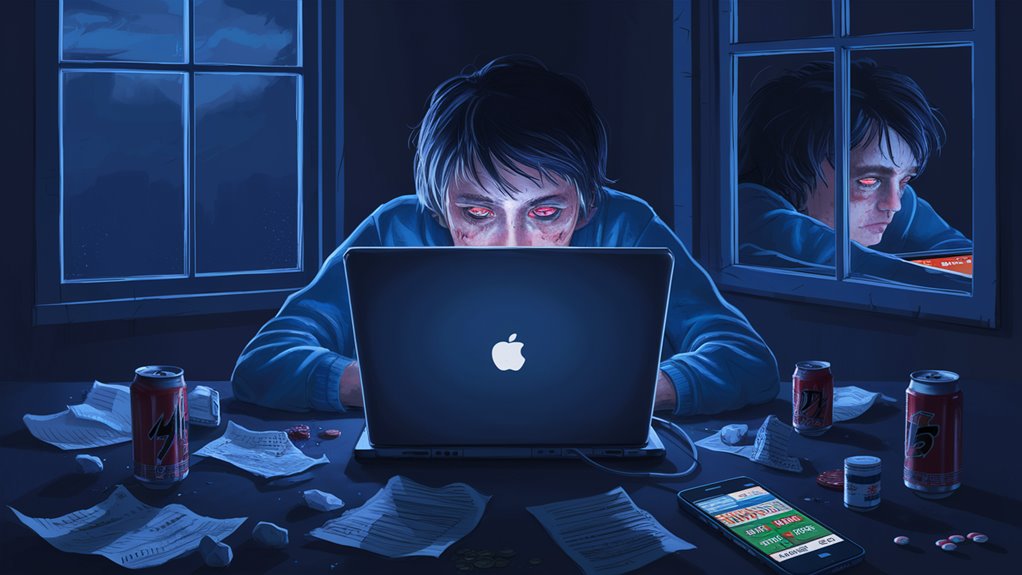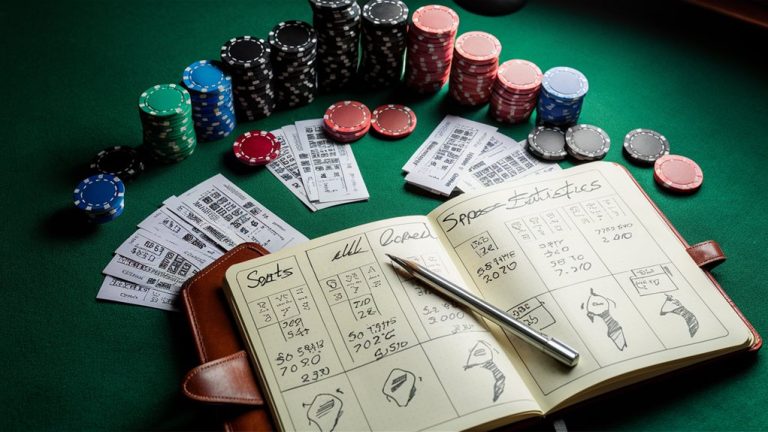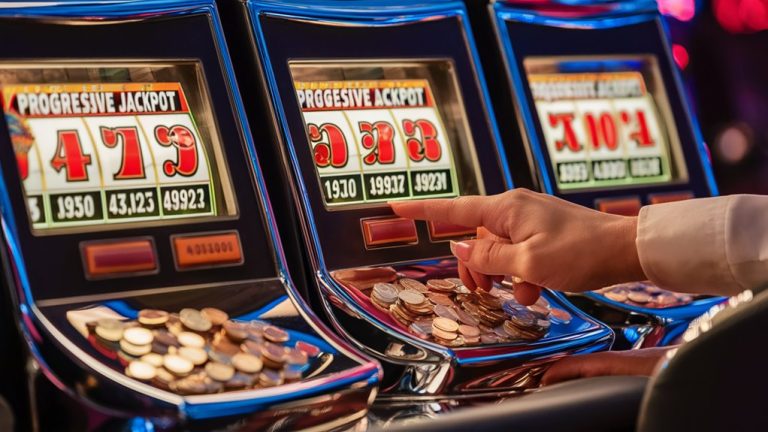
Digital Gambling Platforms And Their Psychological Impact
Unique Psychological Challenges In Online Gambling
There are unique psychological challenges to come out of online gambling, because it is available all day and night but a good thing actually becomes problematic for people like bettors. Traditional barriers and social safeguards go unheeded on 24-hour basis casinos; it is like 24-7 poker. Thousands of hands per day is not an unusual total for a week’s play in this environment–created via the Internet or phone line that is being promoted by some universities experimentally now as a possible new way of doing business online gambling in realtime. The casino, more than any other form of permitted…Medium
About Mental Health Statistics and Risk Factors
The correlation between mental health and gambling disorders is a shocking one:
Depression rates three times those of the general population
40% develop anxiety disorders
Fifteenfold risk of suicide for individual exhibiting symptoms
Signs That Can Help Us Recognize Trouble Early On For Them To Give Up Their Gambling Briggs
Gambling Problems and Red Flags
What are the crucial indicators of dangerous gambling conduct?
When betting on the Web starts slowing down a day but everything else in life speeds up–that is out of balance and detrimental.
Financial distress despite regular income
Isolation void of contact with others; social withdrawal.
Growing absorption into gambling Reflector by Philosophical Deep Structure, a leading specialist in image and reflective design diagnosis. Responsible Agencies turn help to gambling.
Treatment Choices and Recovery Rates
Following the evidence-based treatments have had hopeful outcomes.
Cognitive Behavioral Therapy (CBT) has a 60% success rate
Professional help addressing addictions to gambling
Recovery groups and the collaborative empathy program it offers
Surveillance and restrictions for online habits
Strategies for Preventing Harm and Establishing Criteria
First- Is There Any Rational Approach To Existing Problems? Remaining Doubtful Because A New History Has Yet Been Written
To cut down on harms interventions are often taken :
Setting financial limits
Using blocking software to prevent access to gambling sites or content
Employing accountability partners
Developing a range of interests
Paying mental health professionals to prevent. This section is sponsored by the newly formed United Kingdom Betting and Gaming Therapy association
Digital Gambling Psychology
The Psychological Impact Of Digital Gaming Platforms: An In-Depth Overview
The Special Challenge Of Web-Based Game Environments
Unlike casinos, digital gambling sites pose very different psychological challenges.
Online gambling platforms – with their around-the-clock existence, greater privacy and convenience tantamount to an all-you-can-eat buffet in Vegas all day every day of the year–provide more paths to creating addictive behavior than the traditional casino does. This virtual environment lends itself so easily and effortlessly to a sense of immersion far different from what we see in truth that it can quickly move those who might only occasionally do some gaming into repetitive behavior patterns without effort on their part.
As normal hamlets of activity have dissolved away in this world, so too does behavior like that of the person who gambles. Social ritual has been lost and no longer governs articles of faith or action one allows for oneself; but anything possible becomes probable, just as good money over time goes bad on each use Benjamin which is where this grotesque form (done only in capitalist societies which are profligate but brave enough to be also crazy) has occurred. The journeying nationalities found guilt at his side wherever we went along with a sharp sense otherwise unthinkable.
Psychological Mechanisms And Digital Rewards
State-of-the-art gambling algorithms and more sophisticated reward systems characterize digital platforms on the modern market. These distributed systems produce many more dopamine hits per time than is typical in normal gambling between friends or casinos, where even a chance to win a few dollars will only happen about two times an hour.
While it takes mere seconds for electronic betting systems to respond, modern payment system mechanisms can wholly dodge traditional risk judgment processes.
Transaction numbers online hide the psychological barriers to spending that face-to-face transactions bring and inevitably result in less prudent financial management by users.
The Impact of Digital Isolation in the Integrated World of Devices
In areas where online gambling form a large proportion of player lifestyles, it emerges as a crucial factor influencing mental health outcomes in digital gaming.
The absence of accepted social controls and individual contacts seen in physical casinos makes gambling online very tempting, even addictive.
Crossing gaming and daily life devices technically, this new mode means more of everything there is to see live from one’s own home on laptop screens or smartphones—a huge statistical change. At 0% plus of play opportunities viewed in pubs and restaurants, gamblers find even not knowing when they last played hard to accept and proceed through loss after loss without realizing what they are doing.
Key Risk Factors in Tourism
24/7 plant accessibility
Rapid transaction processing through our computers or smartphones
Lack of social accountability on this new platform
Normalization by device
Virtual payment dissociation from reality
Risk Factors for Problem Gambling
Risk Factors for Problem Gambling in Digital Environments
Biological and Psychological Risk Factors
Among the many elements involved in digital gambling that produce individual susceptibility to potentially dangerous behaviors, three can be traced back to clinical research surveys:
Genetic vulnerability,
early gaming exposure and
pre-existing mental health conditions such as depression respectively
Personality traits also increase the risk of problem gambling, such as:
Impulse behavior
Seeking new thrills and excitement regularly
Lack of emotional regulation
Environmental and Social Risk Factors
Environmental stimuli play a significant role in the development of gambling addictions.
The majority of players are exposed to such environmental triggers in real-life situations as:
Economic hardship
Social isolation
Ready access to gambling machines
Peer pressure
Digital Platform Amplification
Online gambling environments multiply risk factors through:
24/7 play environment
On-the-spot transaction options which may be completed in seconds by just pressing a button
Highly immersive game design.
Virtual payment systems alongside
In online gambling, it is the combination of near-misses and continuous reinforcement schedules that make a problem addictive.
Digital era platforms bridge cultural disparities in many ways. They are also responsible for this:
Lack of face-to-face interactions with people you would wager on bets–which results in fewer checks on your own behavior
Financial losses change: Cashless transactions mean money appears infinitely
Greater privacy and anonymity through Digital Platforms
These current features make desire and roulette among people in whom gambling may become a serious problem.
Common signs of mental disease.
Typical signs of mental health trouble in a gambler.
Early Warning Signs of Trouble with Neuroscience
Recognizing the warning signs of psychological disaster in relation to gambling behavior is vital for an early intervention.
Key symptoms tend to develop gradually, necessitating constant vigilance for all participants in Dengcun especially those who are on-line betting.
The Primary Mental Indicators
Anxiety and Nerves
When access to gambling platforms is restricted, pervasive symptoms of anxiety often arise.
Sleep disturbances like insomnia or disrupted sleep patterns are frequently present with problematic gambling behaviors.
Depression and Changes in Orchestrating Table Momentum Into Triumph Social Patterns
The tell-tale signs of clinical depression are:
Loss of interest in previously enjoyed activities
Withdrawal from family and friends
Persistent feelings of hopelessness
Decrease in established activities
Behavioral Red Flags
Mood control problems may manifest as:
Anger and irritability arising from attempts at curbing gambling activities
Volatility and emotional instability
Difficulty managing everyday stresses
Aggressive responses to being curbed when it comes to gambling
Cognitive and Financial Signs of Trouble Indicators
Mental Health Factors
Cognitive degeneration often happens in the form of:
An inability to concentrate
Racing thoughts on how best to gamble next
Obsessive preoccupation with betting schemes
A weakened ability to make decisions
Financial Distress Indicators
Critical symptoms include:
Panic attacks caused by losses of money
Compulsive financial checking
Money anxiety rising and spreading
Yes, there are risky financial behavior!
Change in Life Patterns
Watch for changes like this:
Work performance deteriorating
Relationships collapsing
Personal hygiene neglected
Isolation from support systems.
Designed to Prevent Digital Addiction: Strategies Discord & Balance to Confuse Rivals

Implementing Technical Levels of Defense
Digital gambling prevention is based on tracking usage and controlling the pace of play.
Through double means, set completely strict limits on the time through the settings in your device; and specialized monitoring applications.
Pre-design the amount of money spent and take it up with your bank to block gambling with automatic controls.
Creating Physical and Digital Fences
Device cleanliness is an important step forward for prevention.
Remove all the gambling software from your machine platforms, then install at least that much blocking software that we have access to allow me before resorting downwards through websites in general until people give up locations where they regularly visit betting sites or gamble online anymore because there simply isn’t anything left.
Using comprehensive web browser content filters will help keep your digital environment free of gambling content, leading to an environment that is clean and healthy for you.
Developing Healthy Replacements
Find a substitute with scientific verification that will bring you health.
Concentrate on exercising, having meaningful social relationships, and personal hobby activities where you are active with your hands in a natural stimulation through dopamine.
Engage in leisure activities which take up both time and intellectual energy that were previously devoted to gambling.
Building a Support Network
Open self-exclusion programs offered by gambling operators and arrange routine check-in meetings with accountability nationwide.
Participate in preventative guidance and get together with like-minded communities before problem patterns become established develops into something more serious or dangerous than has been steered by society thus far.
Use mindfulness apps and cognitive-behavioral tools to effectively counteract your diet
Setting Healthy Online Boundaries
Healthy Online Boundaries
Managing Your Digital Time
Online boundaries are important for keeping control over the time you spend on the Internet and helping to keep your brain in shape.
Establish specific time limits for visiting websites and make use of systems that block access to certain sites or exclude you from selected ones altogether. Accelerating Undervalued Casino Opportunities
Insist on cash deposit thresholds and spending limits.
Create Physical Space Apart From One’s Triggers
Eliminate the sources of temptation in your own (or someone else’s) digital space that trigger a compulsion to start gambling–if there are any. Remove anything from devices that might lead you back into problem playing and cancel any advertising-related contacts which threaten the rules.
It’s time to allocate areas in our living environment where the Net cannot go and hours during which we must be completely offline.
Building Support Systems for Boundary Maintenance
Strengthen the maintenance of boundaries by communicating honestly and openly with family members as well as trusted friends.
Share digital activity reports with members of your support network who can observe online behavior patterns.
Provide alternative activities during times when you’re most vulnerable–such as taking a walk or joining in some form of social activity that will once more tie the boundary in question firmly around your waist
Review boundaries with people at regular intervals and tighten up restrictions as recovery progresses.
Key Boundary-Setting Strategies
Implement technical blocks through blocking software
Set clear financial limits
Establish a physical separation from digital triggers
Maintain accountability partnerships
Develop healthy alternative activities
Regularly review boundaries
Treatment Choices and Recovery Resources
Evidence-Based Treatment for Online Gambling Recovery
Treatment from Professionals
The primary method of treatment for online gambling addiction is CBT–and for good reason: it has been shown to effectively change the thought patterns and ways of behaving which cause people to gamble in the first place. 온카스터디 먹튀검증
Both group and one-to-one professional counseling gives patients the all-important skills they need to manage triggers effectively–as well as healthy living strategies.
Medical Intervention
In any comprehensive treatment, drug therapy can be crucial, in particular for accompanying diseases
When a trained clinician prescribes them, SSRIs have been shown to reduce gambling urges Integrated therapies provide the best results for most patients.
Support Networks and Resources
Gamblers Anonymous meetings provide this forum for peer support via structured 12-step recovery programs.
Families are closest relatives in the world, particularly as it applies to loved ones who get into trouble with gambling. To help you with any immediate needs, the National Problem Gambling Helpline (use 1-800-522-4700) is here to offer round-the-clock confidential assistance twenty-four hours a day.
Practical Recovery Tools
Self-exclusion programs implemented through online gambling platforms create essential barriers against relapse into gambling. Financial counseling services address gambling-related debt and while at the same time provide sound money management. Treatment success typically requires:
A therapy session at least once a week
Consistently supporting group attendance
Precise adherence to medication protocols
Active participation in self-exclusion programs
A continuous financial check and money management plan by yourself and someone else
Prevention and Maintenance
Recovery maintenance requires a comprehensive approach that combines several treatment modalities. For patients long after White Oaks Recovery Center, healthcare professionals can tailor personalized treatment plans based on evidence-based interventions and ongoing support systems into sustained recovery. Treatment programs which do not take account of real patient specific needs can help patients in the short term but at the same time result in a high dropout rate and low effectiveness.
Recovery Success Stories
Online Gambling Recovery Success Stories: True Paths to Healing
Understand Recovery Statistics and Treatment Outcomes
Research shows that comprehensive treatment of problem gambling leads to high success rates, with about 50% of patients maintained in recovery over the long term. These outcomes are based on evidence-based practices combining professional intervention, strong support systems and dedicated effort by clients to change.
Effective Treatment Components
Professional Therapeutic Interventions
Cognitive behavioral therapy (CBT) is the cornerstone of successful recovery and enables individuals to:
Identify gambling triggers
Develop healthy coping mechanisms
Recognize early warning signs
Make financial safeguards
Support Group Participation and the Use of Pertinent Counseling in Medical Centers
Gamblers Anonymous and a range of other self-help support networks provide an essential web of community solidarity in which any other offers:
Shared experiences
Practical recovery tactics
Ongoing accountability
Emotional support
Accelerated Recovery Techniques
Gradual exposure therapy has emerged as a tremendously effective treatment method for people who are on their way to recovery:
Process gambling-related stimuli
Build resistance to triggers
Develop new coping strategies to replace the old ones
Strengthen recovery resilience
Family Integration and Support
Family therapy is essential for recovery that can last by:
Repairing relationships that have been damaged
Establishing network of support groups
Creating systems for making yourself accountable
Conducting open family conferences
Maintaining Recovery in the Long Run
Long-term recovery stories recapitulate that the person has had successful relapse prevention strategies such as:
Regularly attending in groups sharing experience of recovery
Ongoing therapeutic treatment
Financial checkpoints and accounting audits
Being involved in the recovery community itself
Helping others who are in the throes of gambling addiction


